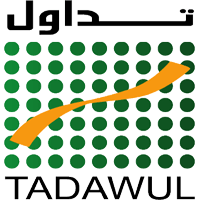
As the Saudi stock market,the Tadawul All-Share Index or TASI, reaches its highest point since May of 2010, analysts are optimistic about the Kingdom’s overall economic prospects in 2011. After all, Saudi Arabia’s economy escaped much of the destabilizing financial turmoil that gripped many economies, especially in the West, since the global economic downturn of 2008. While not without its own domestic and regional challenges ahead in 2011, Saudi Arabia is positioned for strong economic performance in 2001.
One of the question marks for the Saudi economy is always the price of crude oil. Petroleum export revenues are the reason the Saudi government has the ability to invest heavily in their infrastructure growth. Oil prices rebounded in 2010, as economist John Sfakianakis of BSF discussed in his recent comprehensive analysis of the Saudi budget, “The latest jump in demand led world stocks to decline by 1.5 mbpd in Q3 and an anticipated 0.6 mbpd in Q4, supporting recent price increases. Credit Agricole CIB expects WTI prices to surpass $80 a barrel in Q4 and Q1 2011, although efforts by OPEC to increase production should prompt oil prices to return to the $70-$80 per barrel range in 2011.” The price of oil in 2011 will have a similar effect on Saudi revenues for the fiscal year but its effects on economic growth in the short term is unlikely to be substantial. Continued significant investment in major infrastructure projects is expected.
To that point, 2011 is likely to be an even better year than 2010 for the economy as a whole. Assuming the global economic recovery process, as slow and imbalanced as it may be, is favorable and oil’s price stays within the “comfort range” of $70-$80 a barrel, if not higher, Saudi Arabia will continue to move ahead with its recovery as it has little need to address projected debts and deficits. The signals suggest prospects are good for investors across the sectors of Saudi Arabia’s economy.
One area that has seen massive investments in Saudi Arabia has been the petrochemical sector and the downstream activities. If crude oil exports have gotten Saudi Arabia to where it is today economically speaking, then refineries and petrochemical facilities will usher it into a leadership position in the 21st century. Such is the thinking of Saudi technocrats and rulers as evidenced by their large investment in aluminum, plastics and other downstream plants across the Kingdom, as well as in their demonstrated interest in building and operating the most modern and efficient refineries in the world.
New Year, Old Challenges
No country’s economic welfare is assured, as the world is an unpredictable and interconnected theater of self-interested actors. Major events on one end of the globe can ripple across the world with unpredictable consequences. Aside from largely uncontrollable and, in some respects, yet to be identified international variables, there are great regional concerns. A reflective Arab News editorial this week noted, “While it has been a good year for the Kingdom and the prospects remain excellent for the year ahead, the same cannot be said for the wider region.” It said many of Saudi Arabia’s neighbors face major challenges. Lebanon, Egypt, and Iraq are challenged by political turmoil and the situation is far worse in Yemen, Saudi Arabia’s southern neighbor. Could 2011 could be the year that the challenge posed by Iran’s nuclear program and the pushback from America and its allies comes to a head? With analysts forecasting catastrophic consequences for the Gulf if military strikes are made against Iran’s nuclear facilities a rosy economic picture could easily sour.
Meanwhile, Saudi Arabia faces domestic challenges that factor in its assuming a greater economic role on the world stage that carry over from the past. Employment for a growing number of citizens at home as well as education modernization and expansion to equip that workforce, as well as increasing affordable housing are all issues that the Kingdom must tackle. However, Saudi Arabia has taken on these issues head on and can be expected to continue to address these needs.
With all of the encouraging signs for the Saudi economy, global economic recovery and increased demand for and production of export oil, it is easy to see why observers are optimistic on the economic future for the Kingdom in 2011.
By: Lucien Zeigler
Zeigler publishes Arabianomics.com, an important source of news and analysis on Gulf trade and energy industry news.

Leave a Reply
You must be logged in to post a comment.